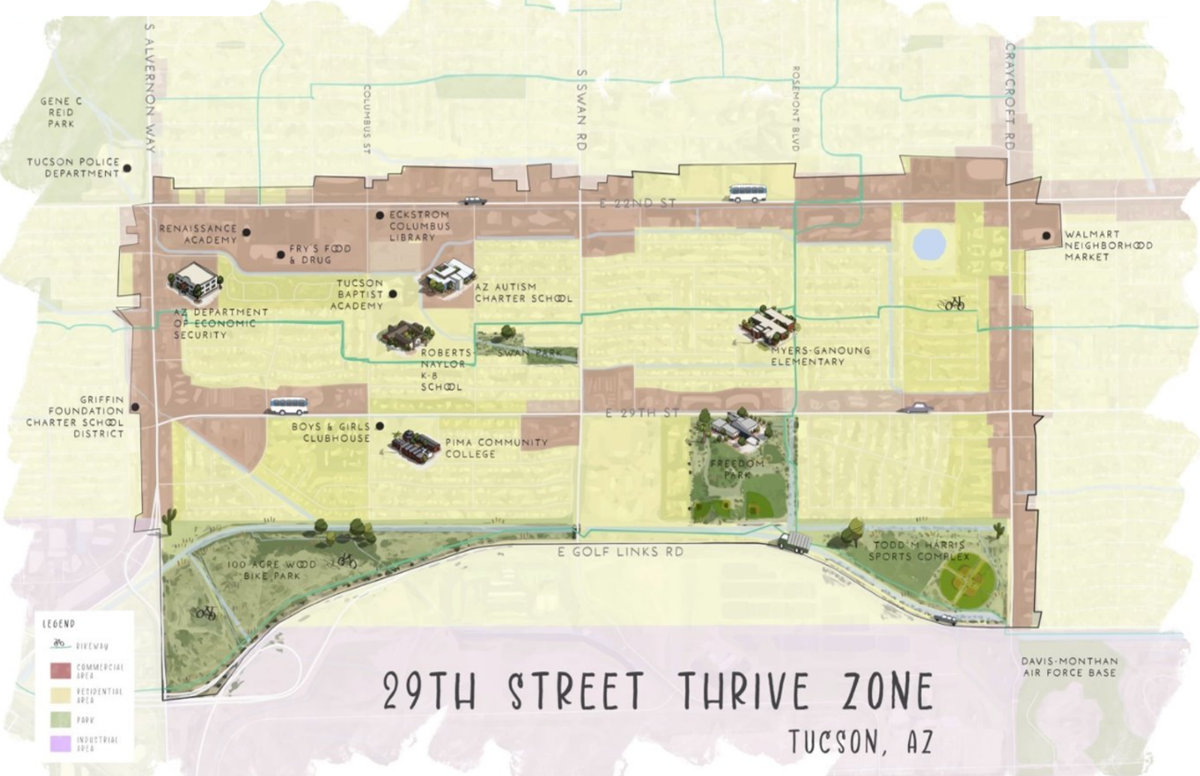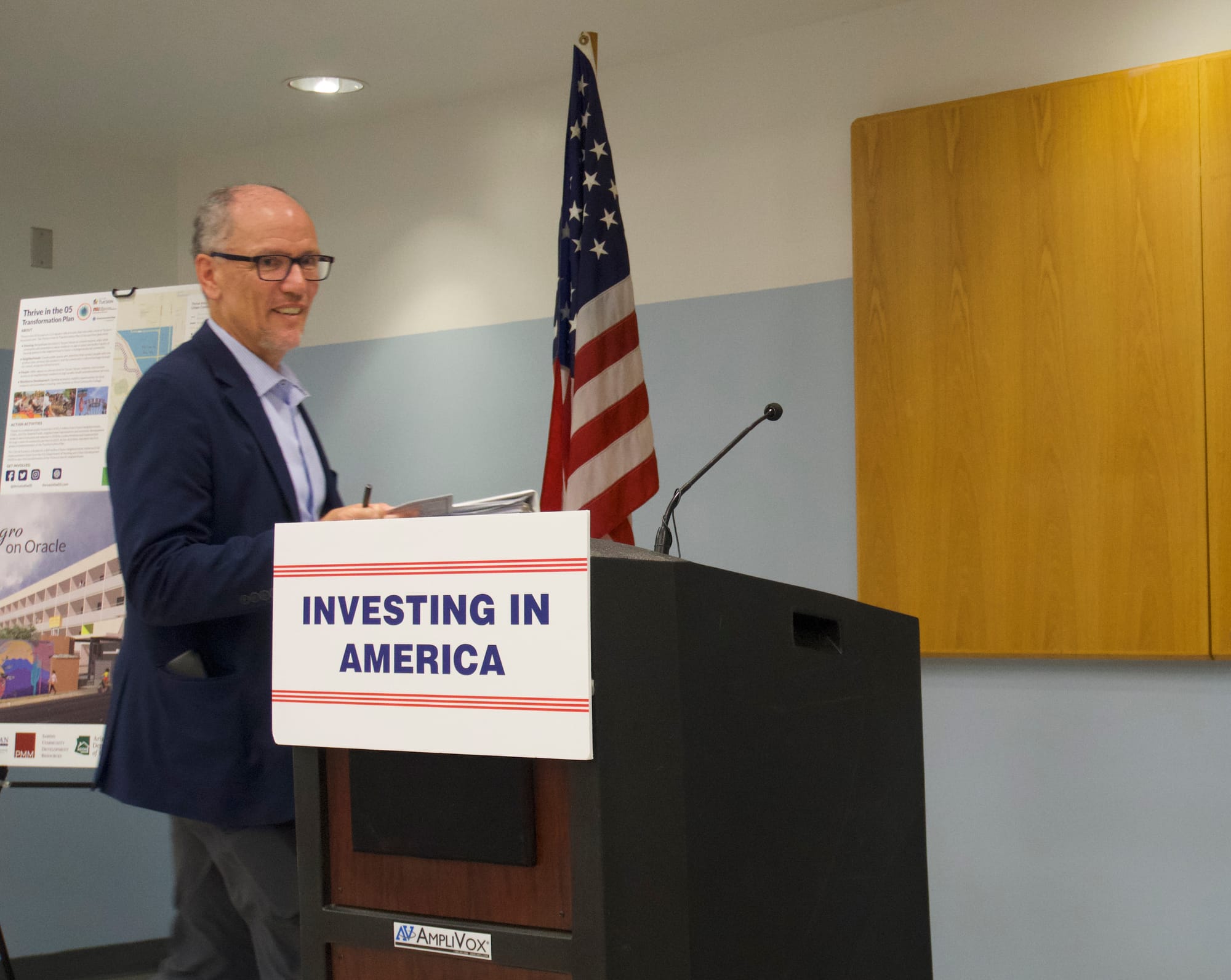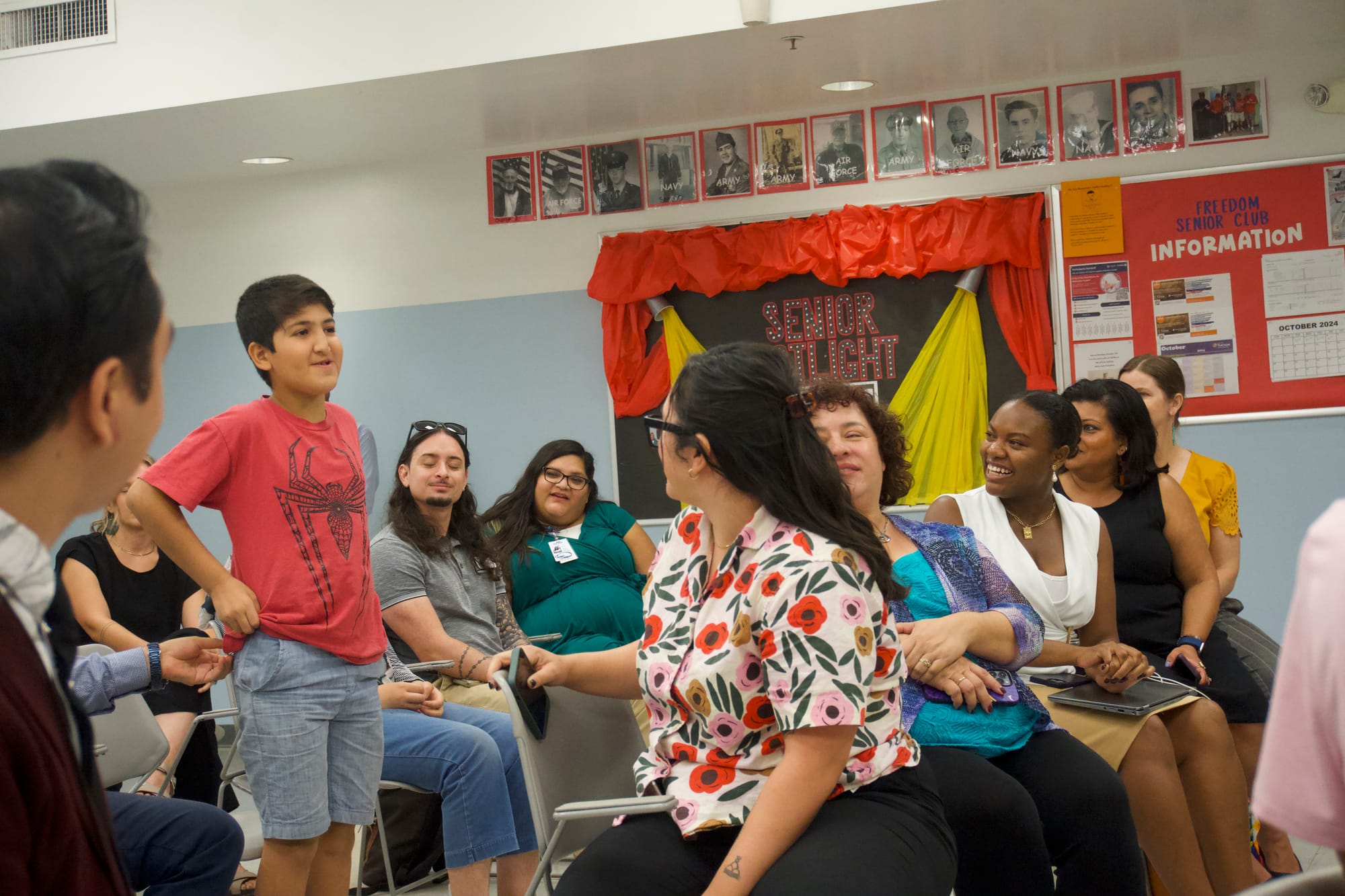White House Official promotes success of city’s thrive zones
Last week, Tom Perez, senior advisor and director of intergovernmental affairs for Joe Biden, was in town to tour the administration’s recent investments in affordable housing in the 29th Street Thrive Zone.

Tucson has been a popular stop along this year’s campaign trail, with prominent party members, candidates and White House officials flocking to town to drum up press and votes.
Last week, Tom Perez, senior advisor and director of intergovernmental affairs for Joe Biden, was in town to tour the administration’s recent investments in affordable housing in the 29th Street Thrive Zone.
The area has been identified by Tucson’s mayor and council as a historically underserved community based on a variety of data and is a complement to the city’s Thrive in the 05 program, which focuses on the 85705 zip code.
The Thrive Approach takes a holistic look at a place and identifies a plan to transform both the physical environment and opportunities for residents to improve their quality of lives, through education, services and jobs.
The zone was made up of 4,717 households in 2022, with a median household income of $32,684.
In December 2022, the city enacted a housing affordability strategy focused on building and maintaining inexpensive housing through a variety of funding intiatives. Since then, the Biden-Harris administration has invested more than $50 million into various housing projects, with plans for more to come.
After a tour of some of the administration-funded projects, Perez was joined by Tucson Mayor Regina Romero and other local officials for a discussion about funding for affordable housing, eviction prevention and housing equity.
“From unsheltered, to home ownership and everything in between,” said Romero. “Federal dollars have been of assistance to us because of the incredible investment that we’ve seen within the Biden-Harris administration.”

Romero said she hopes to continue to create solutions that will improve the quality of life for residents, while addressing the challenges of extreme weather, rising home prices, deferred maintenance needs and more.
But most of these solutions, such as creating more housing, creating paths to home ownership and assisting with eviction prevention, rely heavily on investments and grant funding, she said.
Funding is essential to adding more affordable housing in the 29th Street Thrive Zone and other parts of town. Last month, the U.S. Department of Housing and Urban Development announced that the Thrive Zone will receive a $500,000 Choice Neighborhood Improvement grant.
This is the third grant the city has received for the two Thrive Zone programs, with two previous grants going towards Thrive in the ‘05.
Thrive Zone Planning Coordinator Alison Miller believes in layering these investments across sectors like education, human services and housing.
“The thrive zone approach really comes from the understanding that we as a city government have disinvested in certain communities and people for generations,” she said. “We have a duty to invest equitably in these neighborhoods.”
According to Miller, these federal grants allow organizations like the Thrive Zone to listen to communities and build trust. Their plans include creating amenities for residents like community gardens or services for refugees – all with the goal of longer-term transformational investments in housing.
“Residents are the experts in their community and their leadership must be centered as we work together to build on community assets, identify challenges and propose new solutions,” she said.

Attending the discussion was a father of four who immigrated to the U.S. a year and a half ago from Afghanistan. The man, a former civil attorney, said his family has received assistance from the Thrive Zone program and credited the group for helping them “find their way” after a difficult adjustment to the U.S.
When Perez arrived at the podium, he asked the man for the name of his 6-year old son sitting beside him.
“You are going to be our bosses someday,” Perez said to the man’s children.
Throughout his speech, Perez stressed the importance of legal services and partnership between the city and county when it comes to affordable housing.
“If you want to reduce the rents of the unhoused, let’s make sure that we can prevent evictions at the onset,” he said. “When you have legal representation, the data is overwhelming. It helps prevent evictions.”
For Perez, it all boils down to “doing big things that help people,” like taking American Rescue Plan Act funds and buying buildings, transforming neighborhoods and making investments that have long-term return, he said.
Perez said he believes in funding infrastructure projects that bring communities together, and the city of Tucson and Pima County are doing just that.
“We talk about thrive zones,” he said. “I think this has become a thrive city and a thrive county. I really do.”
Olivia Krupp is a journalism major at the University of Arizona and Tucson Spotlight intern. Contact her at oliviakrupp@arizona.edu.



